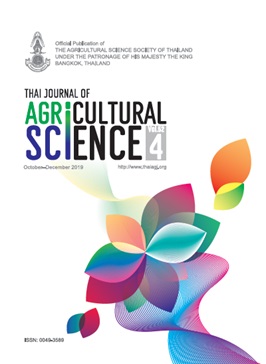Bioactivity of Essential Oils, Extracts and Powders of Cupressus arizonica Greene, Juniperus communis L. and Mentha longifolia L. on Three Stored Product Pests
Main Article Content
Abstract
One of low-risk and less damaging strategies, is utilizing plant compounds for controlling stored product pests. In the present study extracts, essential oils and powders from Cupressus arizonica Greene, Juniperus communis L. and Mentha longifolia L. were used on reproductive inhibition of F1-Progeny and damage (feeding deterrence) tests on three stored product pests such as Callosobruchus maculatus Fabricus, Sitophilus granarius L. and Oryzaphilus surinamensis L.. In feeding deterrence experiment, powder of J. communis on O. surinamensis with mean 15.00 ± 0.87 and the essential oil of M. longifolia on C. maculatus with mean 8.33 ± 0.58 had more and fewer effects, respectively. In F1-Progeny experiment, essential oil of C. arizonica on S. granarius with 59.64 ± 0.45% and powder of C. arizonica on S. granarius with 45.13 ± 0.69% had more and fewer effects, respectively. Essential oils derived from C. arizonica, J. communis and M. longifolia were analyzed by gas chromatography indicated that the main compounds were as of α-Pinene (19.87%), Sabinene (24.55%) and Pulegone (31.26%), respectively. Present study showed that essential oils, extracts and powders of plants have considerable effects on feeding deterrence and F1-Progeny of C. maculatus, S. granarius and O. surinamensis. Therefore, using botanical compounds as an integrated insect management program were recommended.


